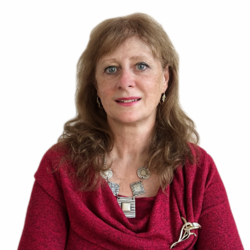Viewing the freshwater crisis from space: A world of drought and flood extremes
Day: Wednesday 16 October
Time: 17:45 - 18:45 CEST
Location: Auditorium, Level 3, South Wing, MiCo Convention Centre
Flooding is one of the most disruptive natural disasters that we face. Major flood events (e.g., the Harvey and Irma events in the Gulf of Mexico in 2017, Germany in 2021 and the Emilia Romagna region in northern Italy in 2023) can affect millions of people, lead to significant loss of life, and cause monetary losses of billions of dollars. In developing countries (e.g., Mozambique in 2018 and Pakistan in 2022) flooding can displace hundreds of thousands of people, significantly impacting their future life chances and even altering long-term national development trajectories. Globally, the value of infrastructure exposed to flooding is likely to total hundreds of trillions of US dollars, and there is growing recognition that natural hazard risks pose a threat to the global economy.
At the same time, drought is also on the rise as climate change starts to intensify the hydrological cycle. Severe droughts have major impacts on livelihoods, economic impact, and food security for hundreds of millions of people.
Moreover, these issues may even be connected. Analysis of satellite imagery and climate data has shown that in many regions both hazards are increasing simultaneously, a prediction that is in line with what climate models have suggested for some time.
The space community has a major role to play in assessing and mitigating these twin threats by providing immediate and salient data to guide event response. Today's satellites provide an array of powerful observations utilizing optical, altimetry and SAR radar technologies along with low-cost satellite constellations improving the temporal and spatial sampling critical to disaster management and mitigation applications.
This Highlight Lecture will present an overview of global freshwater hazards and demonstrate how space science is making a significant difference to our ability to cope with such extreme events utilizing satellite data that directly target these problems.
Introduction

Maria Fabrizia BUONGIORNO
Director of Technological Research, National Institute of Geophysics and Volcanology (INGV)
Italy

